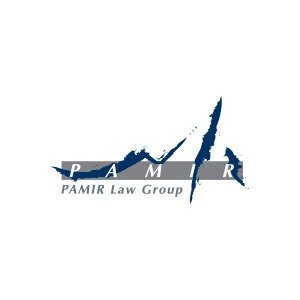Best Equity Capital Markets Lawyers in Taipei
Share your needs with us, get contacted by law firms.
Free. Takes 2 min.
List of the best lawyers in Taipei, Taiwan
About Equity Capital Markets Law in Taipei, Taiwan
Equity Capital Markets (ECM) in Taipei, Taiwan play a central role in connecting companies seeking capital with investors looking to participate in corporate growth and governance. ECM primarily deals with transactions involving the issuance and trading of equity securities such as shares, including initial public offerings (IPOs), follow-on offerings, private placements, and share buybacks. Taiwan's vibrant and well-regulated capital market, anchored by the Taiwan Stock Exchange (TWSE) and Taipei Exchange (TPEx), provides local and foreign entities access to capital while ensuring investor protection and market transparency. Navigating ECM in Taipei involves a complex framework of legal, regulatory, and compliance requirements, often necessitating expert legal guidance.
Why You May Need a Lawyer
Legal advice is indispensable in Equity Capital Markets for several reasons. Companies considering going public or seeking additional equity funding must comply with strict local legal requirements and disclosure obligations. Common situations where legal assistance is crucial include:
- Preparing for and executing an Initial Public Offering (IPO)
- Conducting rights or secondary offerings
- Negotiating private placements or strategic investments
- Complying with continuing obligations for listed companies
- Handling cross-border equity transactions
- Dealing with regulatory investigations or enforcement actions
- Managing shareholder protections and disputes
- Understanding and fulfilling disclosure and corporate governance requirements
Local Laws Overview
Taiwan's legal and regulatory landscape for Equity Capital Markets is robust. The Financial Supervisory Commission (FSC) is the primary regulator, overseeing securities laws under the Securities and Exchange Act. Key aspects to consider include:
- IPOs and Offerings: Companies must obtain approval from the FSC and comply with TWSE or TPEx listing standards.
- Disclosure Requirements: Ongoing financial reporting, material event disclosure, and corporate governance standards must be strictly observed.
- Takeover and Mergers: Tender offers are regulated to protect minority shareholders, with mandatory disclosure obligations.
- Foreign Investment: Regulations govern the participation of foreign entities in Taiwanese capital markets, including ownership caps in certain sectors.
- Market Abuse and Insider Trading: Severe penalties are imposed on insider trading and other forms of market abuse.
- Corporate Governance: Codes of best practice are enforced for board composition, audit committees, and internal controls.
Frequently Asked Questions
What is the role of the Financial Supervisory Commission in ECM transactions?
The Financial Supervisory Commission regulates and supervises all securities market activities, sets listing rules, reviews offering documents, and ensures market integrity.
How can a company list its shares on the Taiwan Stock Exchange?
A company must meet financial, operational, and governance standards, file a listing application, and undergo a review by the TWSE and the FSC before approval is granted.
Are there restrictions on foreign ownership of equity in Taiwanese companies?
Yes, certain sectors have foreign ownership restrictions, and all foreign investments must comply with the Foreign Investment Regulations and may require prior approvals.
What are the main legal documents involved in an IPO?
Key documents include the prospectus, underwriting agreements, board resolutions, legal opinions, and corporate governance certifications.
What is the process for making a public offering of shares?
The process involves preparing offering documents, obtaining regulatory approvals, meeting disclosure and financial requirements, and conducting the offering via authorized channels.
What are the key continuing obligations for listed companies?
Listed companies must provide periodic financial reports, disclose material events, comply with corporate governance codes, and maintain transparent communication with investors.
How does Taiwan address market abuse or insider trading?
Insider trading and market manipulation are criminal offenses in Taiwan, with severe penalties including incarceration and substantial fines enforced by the FSC and law enforcement agencies.
What protections are available for minority shareholders?
Minority shareholders are protected through mandatory disclosure, fair treatment rules, and the right to seek redress for violations via the courts or regulatory authorities.
Can companies buy back their own shares in Taiwan?
Yes, companies can initiate share buybacks under conditions set by law, including board approval and mandatory public disclosures to ensure transparency.
What is a private placement and how is it regulated in Taipei?
A private placement involves offering shares to a select group of investors instead of the public. It is subject to specific regulatory conditions, caps on yearly offerings, and disclosure requirements to the FSC.
Additional Resources
If you need more information, these organizations and resources can be invaluable:
- Financial Supervisory Commission (FSC): The main regulator overseeing capital markets and securities.
- Taiwan Stock Exchange (TWSE): Administrator of main board listings and offers guidance for listed firms.
- Taipei Exchange (TPEx): Regulator of over-the-counter and emerging stock markets.
- Ministry of Economic Affairs (MOEA): Regulates company formation, licensing, and foreign investment.
- Legal Aid Foundation: Offers general legal assistance to qualifying individuals and entities.
- Industry publications, law firm guides, and reputable accounting or securities associations for practical updates and interpretations.
Next Steps
If you require legal assistance related to Equity Capital Markets in Taipei, Taiwan, consider the following steps:
- Identify your specific needs, such as IPO planning, compliance advice, or shareholder dispute resolution.
- Consult with a lawyer or legal team with proven ECM experience in Taiwan, ideally with a track record of successful transactions similar to yours.
- Gather all relevant corporate and financial documents to streamline your initial consultation.
- Seek referrals from trusted business partners or professional organizations for reliable legal counsel.
- Engage in preliminary discussions to understand the scope, timeline, and potential costs involved.
- Stay informed about new regulations and best practices through seminars, workshops, and market updates.
Lawzana helps you find the best lawyers and law firms in Taipei through a curated and pre-screened list of qualified legal professionals. Our platform offers rankings and detailed profiles of attorneys and law firms, allowing you to compare based on practice areas, including Equity Capital Markets, experience, and client feedback.
Each profile includes a description of the firm's areas of practice, client reviews, team members and partners, year of establishment, spoken languages, office locations, contact information, social media presence, and any published articles or resources. Most firms on our platform speak English and are experienced in both local and international legal matters.
Get a quote from top-rated law firms in Taipei, Taiwan — quickly, securely, and without unnecessary hassle.
Disclaimer:
The information provided on this page is for general informational purposes only and does not constitute legal advice. While we strive to ensure the accuracy and relevance of the content, legal information may change over time, and interpretations of the law can vary. You should always consult with a qualified legal professional for advice specific to your situation.
We disclaim all liability for actions taken or not taken based on the content of this page. If you believe any information is incorrect or outdated, please contact us, and we will review and update it where appropriate.
















